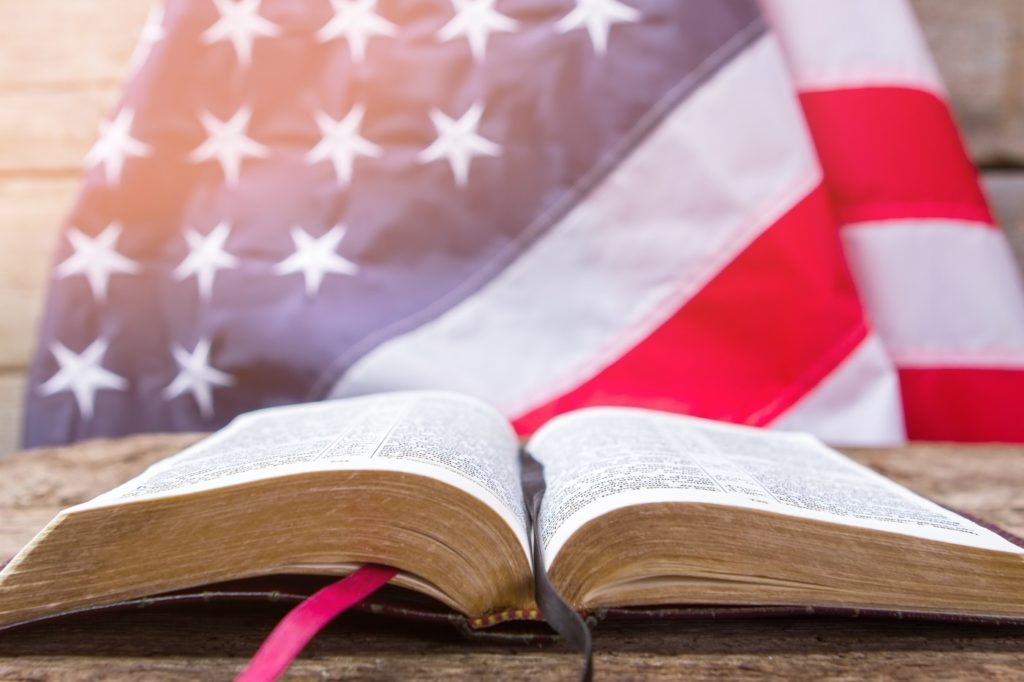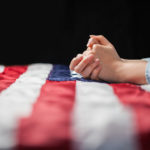In the culture wars that rage in our politics today, people of more orthodox faith traditions are sadly becoming accustomed to their religious freedom being threatened. In education, in many professions, and in the public square, the freedom to live according to the teachings of one’s faith in contemporary life is constantly in need of defense—rhetorical, political, and legal. When the Democrats in Congress and the Biden administration are pushing the Equality Act—which would require people to defy not only their faith but reason itself—and when the World Medical Association considers adopting the principle that physicians should be obligated to refer patients for abortion or euthanasia, it is time to stop and take stock of the foundations of our essential freedom to say “no” as a matter of conscience.
Every “no” to the state in the name of religious conscience, of course, is predicated on a greater “yes” to a power higher than the state. As James Madison famously put it in 1785, “Before any man can be considered as a member of Civil Society, he must be considered as a subject of the Governour of the Universe.” This principle, of the precedence of our duties to God over our duties to any government, was echoed 180 years later by the Catholic Church’s Second Vatican Council, which declared in Dignitatis Humanae that “every man has the duty, and therefore the right, to seek the truth in matters religious in order that he may with prudence form for himself right and true judgments of conscience.”
Because religious freedom can be threatened in the name of religion—by a theocracy, for instance—it is sometimes erroneously believed that this essential freedom of the mind and will with respect to ultimate questions was an invention of the Enlightenment, following the religious wars in western Europe that came in the wake of the Reformation. As I’ve written elsewhere, religious freedom is thus often thought to be essentially secular in character, springing from Enlightenment hostility to religion’s claims on us.
On these premises religious freedom is subordinated to “separation of church and state,” which in turn is transformed into the aggressive privatization and marginalization of religion, on secularism’s controlling terms. By degrees, this secular origins thesis treats religious freedom as a way station on the road to a society stripped bare of religion altogether. For the thoroughgoing secularist, that is “progress.”
Start your day with Public Discourse
Sign up and get our daily essays sent straight to your inbox.The truth is that religious believers came up with the arguments for religious freedom. More specifically, very early Christians did, as Robert Louis Wilken demonstrates in his 2019 book Liberty in the Things of God: The Christian Origins of Religious Freedom. Wilken shows that the idea of religious freedom was advanced by Tertullian and Lactantius in the third and fourth centuries A.D., taken up by some Christian leaders in defense of Jews in subsequent centuries, developed in the medieval “two swords” doctrine, and elaborated by both Catholics and Protestants in Reformation Europe—all long before John Locke hit upon the notion of “toleration.”
A fine new book making the Christian case for religious freedom is Liberty for All: Defending Everyone’s Religious Freedom in a Pluralistic Age, by Public Discourse contributing editor Andrew T. Walker. He goes right to the heart of the matter when he says this fundamental liberty is all about “grasping truth and ordering one’s life in response to it.” Walker, who teaches at Southern Baptist Theological Seminary, is part of a small but growing band of evangelical Protestants who are recovering the natural law arguments about the human person that have chiefly been the currency of Catholics but are in fact the patrimony of all Christians—indeed, of all the heirs of western civilization. But ultimately his arguments are gospel-centered, seeing religious freedom as inextricable from the Great Commission itself.
In a similar vein, the Jewish theologian David Novak, in his 2009 book In Defense of Religious Liberty, defends religious freedom on political and philosophical grounds drawn from reflections on natural law. But Novak turns also to the biblical and Talmudic traditions and finds religious freedom there as both a collective right of a community and an individual right that may be claimed by a person. In a notable argument, he writes:
Since I am a religious member of a democratic society, I can make only a religious case for human rights in good faith. Secularists should make their own arguments by themselves, and I am always prepared to listen to them carefully since I want to live in peace with them in civil society. Nevertheless, secularists should be able to do so without denying me the right to connect my religious belief to my political advocacy, just as I should be able to do so without denying them the right to connect their nonbelief to their political advocacy.
For a fresh look at the Catholic contribution to religious freedom in America, see Michael D. Breidenbach’s important new book Our Dear-Bought Liberty: Catholics and Religious Toleration in Early America. Zeroing in on the Calverts and Carrolls of colonial and revolutionary Maryland, he shows that the first Catholics in America were formed in an “antipapalist” or “conciliar” tradition, which dissolved the dilemma of divided temporal loyalties to church and country. This positioned these prominent Marylanders to participate unproblematically in the founding of the United States, and to exert some influence on the new nation’s protection of religious freedom.
The official view of the Catholic Church on religious freedom, as a historical matter, is still much debated, though doctrinally it appeared settled in 1965 by Dignitatis Humanae. That same year, the Jesuit Fr. John Courtney Murray published a little book ably encapsulating the issues, titled The Problem of Religious Freedom. The position he staked out was this: “Civil law, which has no power to coerce the religious conscience, has no power to coerce the social expressions of the religious conscience. . . . [T]he care of religion, in so far as it implies the care of souls, is not in any sense a function either of civil society or of the state.” Suffice it to say, Catholics are still disagreeing over these things.
I was involved myself almost a decade ago in editing a concise treatment of the subject, written principally by Timothy Samuel Shah on behalf of a Witherspoon Institute task force, which was chaired by Thomas Farr, now president of the Religious Freedom Institute. Titled Religious Freedom: Why Now? Defending an Embattled Human Right, our monograph covered the domestic and international arenas and contained anthropological, moral, political, and legal arguments, as well as religious arguments from the Jewish perspective by David Novak, from the Christian perspective by Nicholas Wolterstorff, and from the Muslim perspective by Abdullah Saeed.
Finally, for a principled defense of religious freedom that wades right into the most controversial issues we face today, I recommend Debating Religious Liberty and Discrimination, by John Corvino, Ryan T. Anderson, and Sherif Girgis. The first author and the latter two square off over the conflict between believers who want to live according to their faith in every facet of their private and public lives, and those who claim that religiously motivated behavior does them harm by discriminating against them. The book is a model of civil argument—ultimately showing, however, as I said in reviewing it, that religious freedom is wholly instrumental for secularists, always negotiable on any pretext, always vulnerable to being sacrificed for things they regard as greater goods. And that is precisely the danger we face today.














